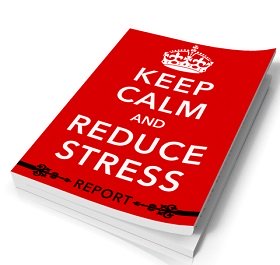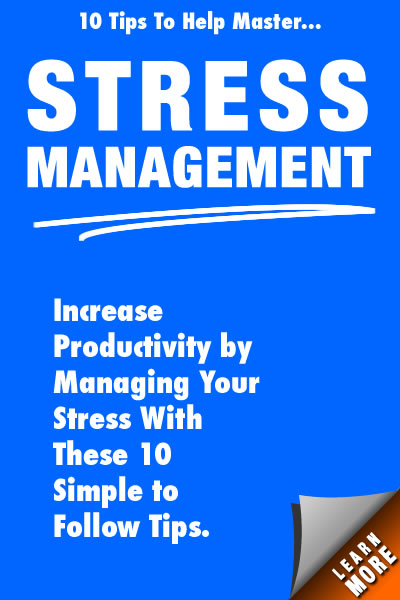Effective Stress Management: Listening to Your Body
"My knee hurts." What’s that got to do with effective stress management? Listening to the body's symptoms is an important way to hear what your body is telling you. My knee has been hurting because of the way I have been swinging my golf club—incorrectly swinging the club, I might add. But with some over the counter pain medication and a corrected swing, the pain subsided. If the condition had continued, I would have visited my family physician to check things out.
Sometimes your body signals other messages that have more to do with mind-taxing issues rather than the physical exercise. That is another way listening to your body can become an effective stress management tool. The amount of mental stress you are experiencing can become over-taxing and cause your body to "shout out" and warn you to slow down. The messages can be understood if you take time to notice the patterns in your daily living.
During the day, certain events may be triggering that headache, stiff neck or upset stomach. When your body reacts, can you decipher its message by directing careful attention to how your body feels at that time? Are you aware of a mood or emotion that may have preceded your headache, stiff neck or stomach ache? Was there an event that triggered it that you can identify?
Your body signals when it is enduring too much stress, and effective stress management begins by listening to your body tell you enough is enough!! Notice that a lot of the time the stressors occur from worrying about what might happen in the future. Your mind plays an important role in handling stress.
Usually your body will try to get its messages through to you despite your lack of awareness or your ignoring re-occurring symptoms. If the mind tries to forget about or diminish the significance of the symptoms, things have a way of getting worse. The role of stress-related symptoms is vital for survival, yet the sustained nature of such symptoms can cause a significant negative impact if left unchecked. Our bodies were not built for long-term, sustained stressors.
How you respond to your body’s messages usually fall into one of two general approaches. Effective stress management requires that you (1) modify the stressor to lower the negative impact on your body or (2), modify how you react to the stressful experience.
In other words, eliminate some of the stressors in your life and learn how to cope with stress so that you can effectively handle your daily life routine without harming your body. Regardless, taking cues from your body’s messages can help you limit the intensity and duration of your body’s stress response and minimize the negative impact.
Manage your stress by increasing your awareness of both internal and external stress triggers in your life that are causing your body to respond with pain or other symptoms. The internal triggers are the worrying, and over thinking that may be occurring in your mind; and the external triggers are the stressors you experience in your living environment.
To practice effective stress management, start by listening to what your body is telling you, because it knows when you are over your stress-limit.
How Does Stress Affects Your Health
Stress Management Tools to Protect Your Health
POPULAR PAGE
Join Calm Starts Here, and receive FREE How to Get a Good Night's Rest and Stop Worrying.
Share this Page on SheToldMe.com
Become a FaceBook Fan










